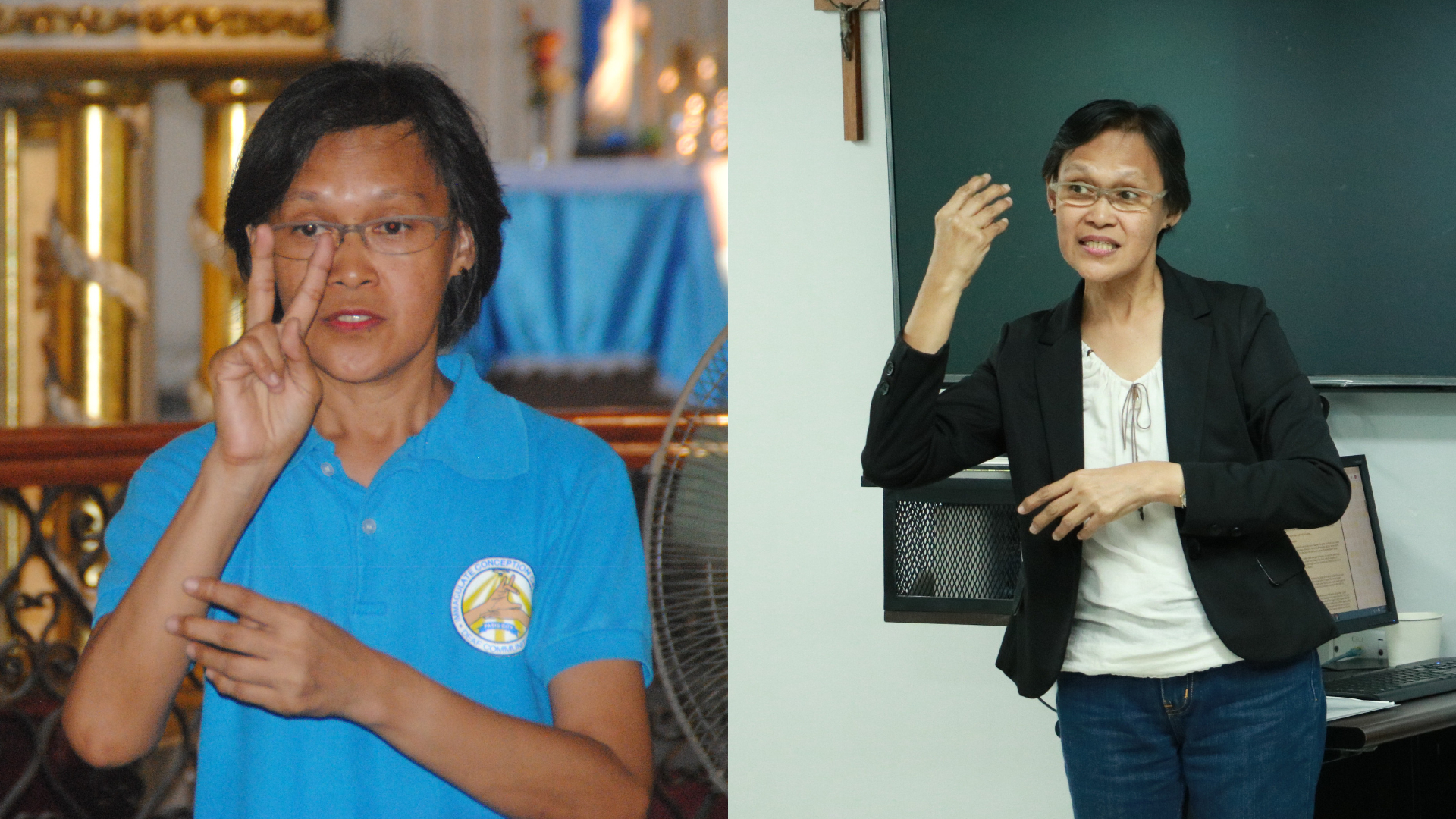During this year’s Women’s Month, we turn the spotlight on a dedicated educator and passionate advocate who genuinely grasped her lifelong calling in service of the Filipino Deaf community.
Ma. Teresa Buenaventura, also known as Ate Tess, dreamed of becoming a nun. However, after being diagnosed with epilepsy, the philosophy graduate was soon in search of a different path in life.
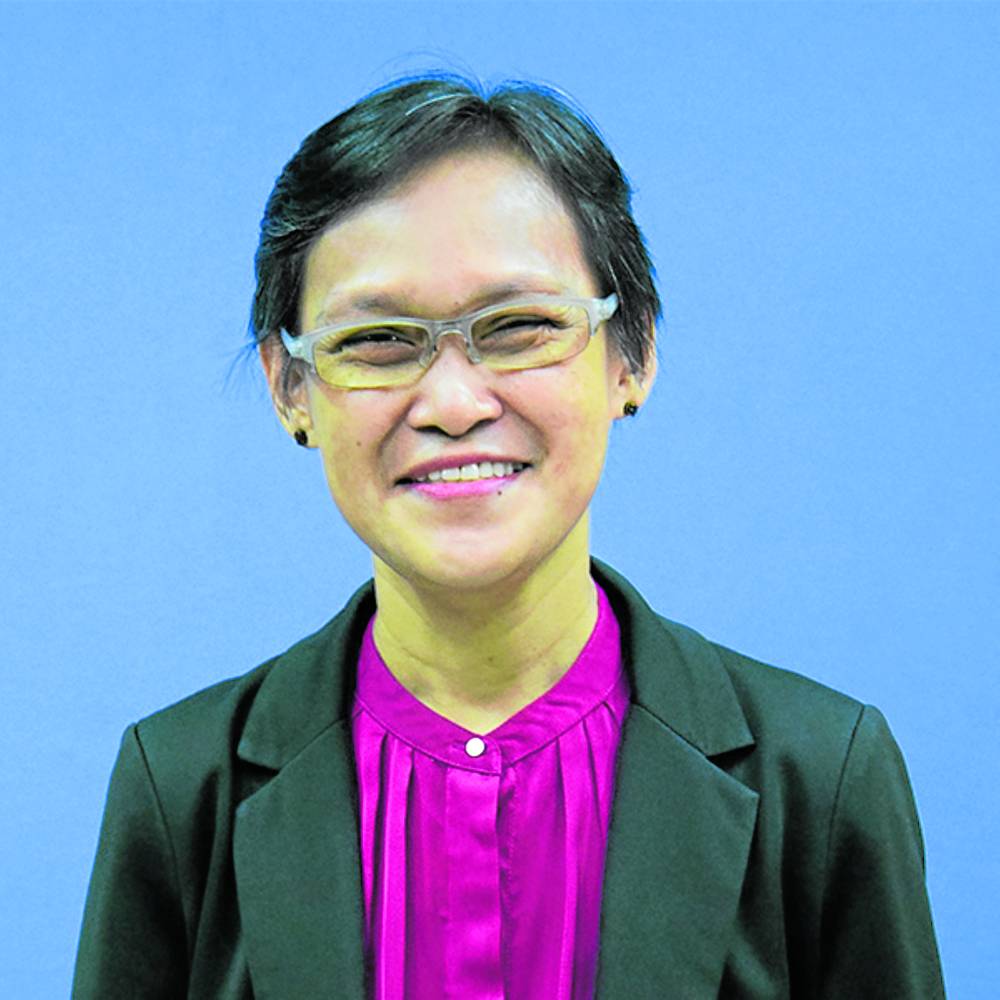
When a friend’s invitation to teach at the Southeast Asian Institute for the Deaf (SAID), now part of the Miriam College in Quezon City, came, Ate Tess took on the challenge.
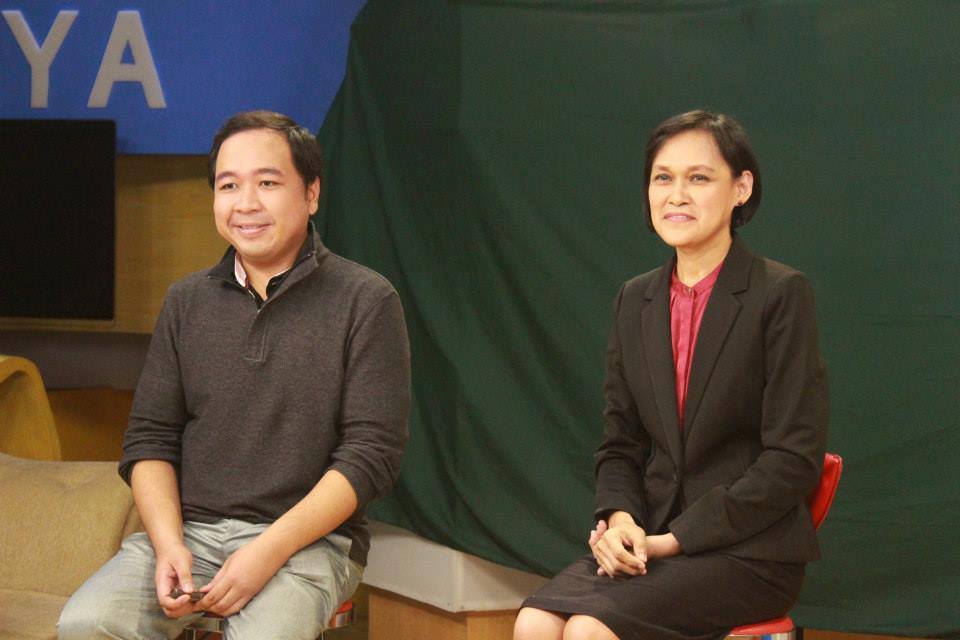
At that time, the only deaf person she knew was a neighbor who was more of a familiar face.
Ate Tess devoted an entire summer to training and memorizing an entire textbook on how to sign in exact English. While at university, she had excellent grades in French and Spanish. This outstanding aptitude in languages allowed her to sign in just a month. “There is art in it, too,” she explained.
So, her new journey as an educator for Deaf students and high schoolers commenced. “Later on, when I was already teaching, I met my Deaf neighbor, and I was finally able to interact with him.”
She was then granted an opportunity to hone her skills at the Philippine Registry Interpreters for the Deaf (PRID) in Pasay City, where she started interpreting for institutional affairs. This was followed by freelance stints at institutions such as Miriam College and Assumption College.
In this newfound career, Ate Tess became a dedicated college instructor for the hearing students of Centro Escolar University (CEU) in the City of Manila and the deaf learners of the Correspondence Accreditation Programs (CAP) at the College in Makati City.
In 1994, she trained once again. This time, to adapt to the Filipino Sign Language (FSL).
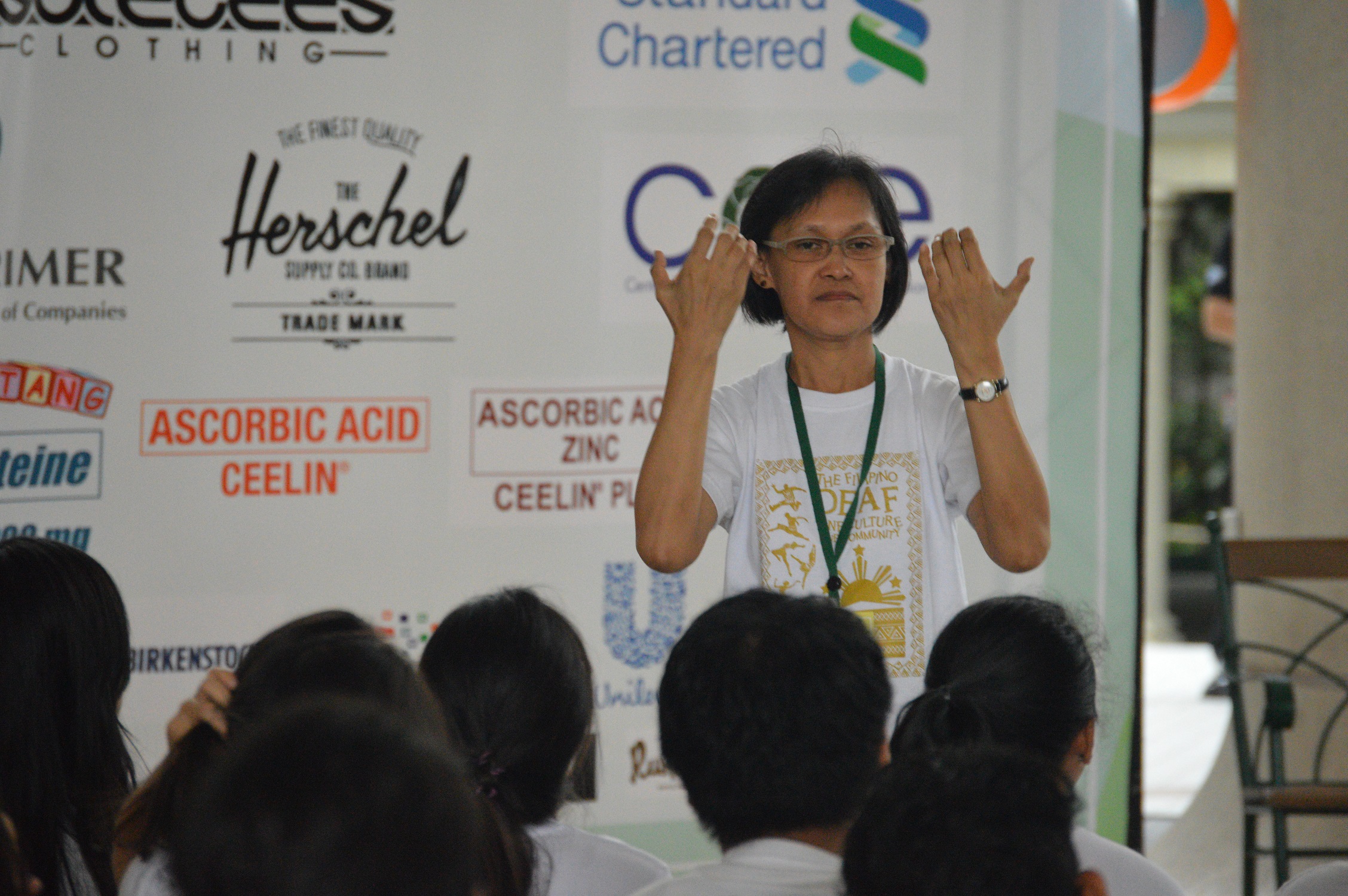
Beyond the four walls of the classrooms, she served as human services supervisor and scholarship coordinator of the non-government organization (NGO) Catholic Ministry to Deaf People (CMDP). For a decade, she assisted the group in initiating awareness campaigns. She likewise conducted FSL interpretation training for local organizations.
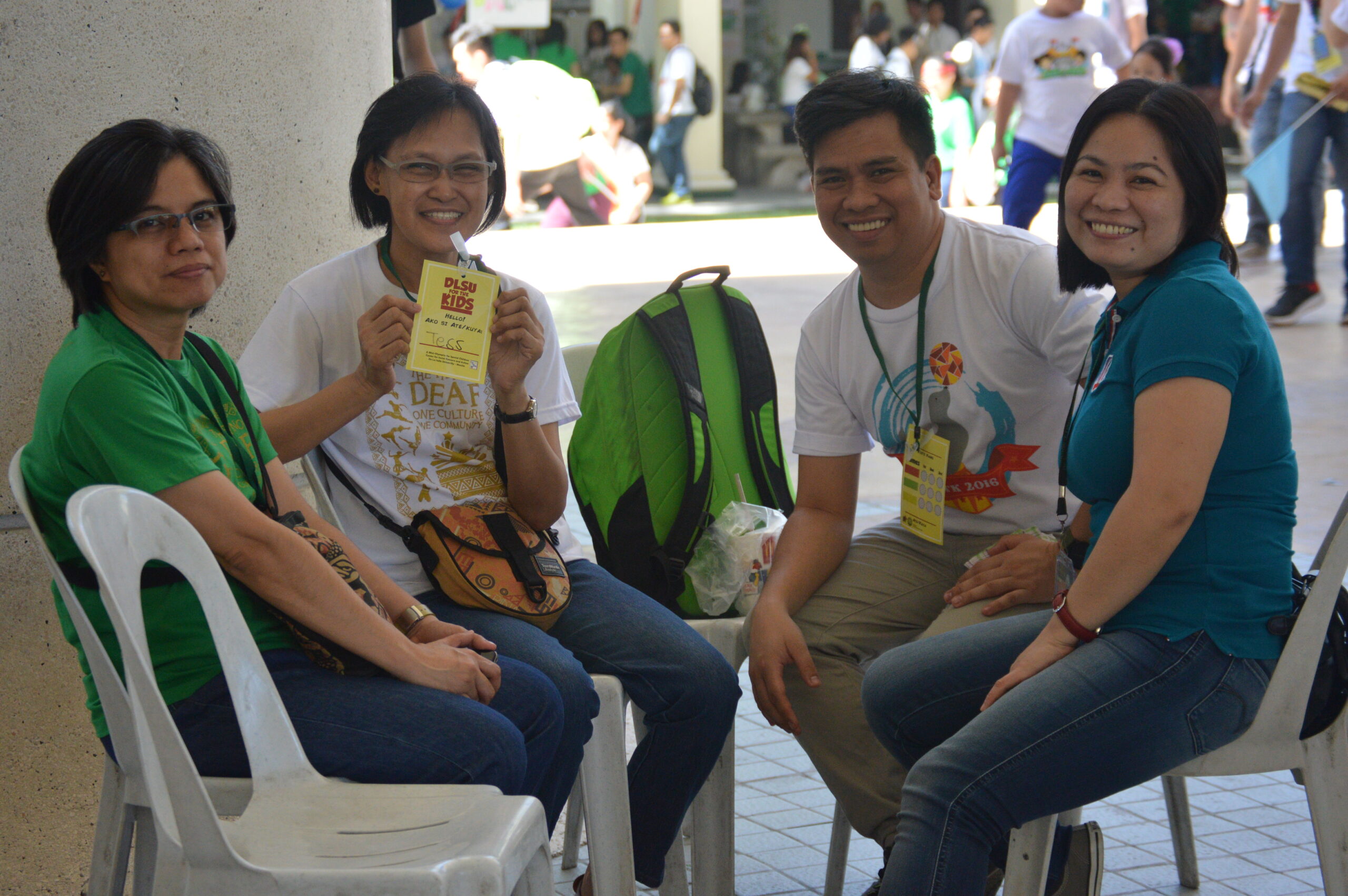
“I consider myself a hearing ally or hearing advocacy worker,” she noted. “My role was to visit public schools to give transportation and food allowances to 150 Deaf scholars. I always had a big bag of cash with me.”
Ate Tess highlighted that the majority of the Deaf in the Philippines do not have access to education, employment, or other opportunities.
“My vision is for every Deaf Filipino to be provided with the rights that they should enjoy,” she added. “I want to make people realize that the Deaf are worth serving, worth knowing, and worthy of a friend, too.”
In 2000, she accepted the offer of her good friend Theresa Dela Torre, then the dean of De La Salle-College of Saint Benilde (DLS-CSB) School of Deaf Education and Applied Studies (SDEAS), to teach the growing population of Deaf learners in its college.
“The Deaf youth are the most vulnerable to depression and abuse, and I want them to get access to education,” she shared. “Benilde has awareness programs; it is a paradise for the Deaf community.”
Ate Tess has since used her skills to reach a broader community. Driven by her mission, she brought her advocacy to broadcast television, where she has interpreted for State of the Nation addresses, electoral debates of national candidates, and public service shows. She even interpreted for Pope Francis himself during his 2015 visit to Tacloban.
“It was so heartfelt. I wanted to cry!” she expressed.
Ate Tess likewise volunteers to interpret for the deaf survivors of sexual abuse during trials. She believes that interpreting does not only bridge the gap between two communities but also helps defend the rights of deaf victims. “It is a very fulfilling task, yes, but also so painful that I cannot help but weep once I am home,” she admitted.
“It was hard because even though we know what happened, we can only interpret what the victims can sign at the court,” she expounded. “Some lawyers and fiscals are not Deaf-friendly, and they question my integrity. I tell them to get a counter-interpreter if they wish.”
Her visits to NGO offices included using sketches and mechanical dolls to seek the truth from victims, whose perpetrators were hearing people—neighbors, even family members. Some clients would be nervous or scared during the trial.
Her vocation has likewise expanded from providing a voice to those who need it to championing for a more inclusive society. For her, family members of the Deaf, as well as social workers, must learn how to sign. The skill must also be picked up by policemen handling children with special needs or stationed at the helpdesks of the abused.
“I am not saying that everyone must learn to sign. But the truth is, in one way or another, they will encounter a Deaf person or a Deaf victim,” she reiterated. “The population of the Deaf community is growing, and it is best to learn their language.”
Even with her plate full, Ate Tess still chooses to spend her Sundays interpreting at the Immaculate Conception Cathedral in Pasig City. Whenever she receives payment, she wholeheartedly donates it to those in need. She is likewise assisting the church in rebuilding its small deaf community.
“I believe it is part of my mission to invite the Deaf to join us in the celebration of the Mass,” she said. “What is most touching for me is that I let them ‘hear’ the word of God, which I think is very essential.”
This year, this woman in action celebrates her 36 years of passionate service to the Filipino Deaf community. However, due to years of marathon interpretation that sometimes lasts for 14 hours straight, the 62-year-old educator has acquired carpal tunnel syndrome, a medical condition caused by the compression of the median nerve.
She likewise obtained a tennis elbow, which brings discomfort around the outside of the elbow, as well as a trigger finger, which causes stiffness whenever she signs.
“The hands of interpreters will get old,” she stated. “We, too, must rest our hands as much as the Deaf people need to rest their eyes.”
Despite this, Ate Tess cannot see herself outside of this field of passion.
“I will still interpret. If not, I will continue to help craft the curriculum for the education of the Deaf. Of course, I will guide the young interpreters,” she promised.
“I want to serve the Deaf community in any way that I can; it is my lifelong calling,” she added. “They need me, and I know I am here to stay.”

